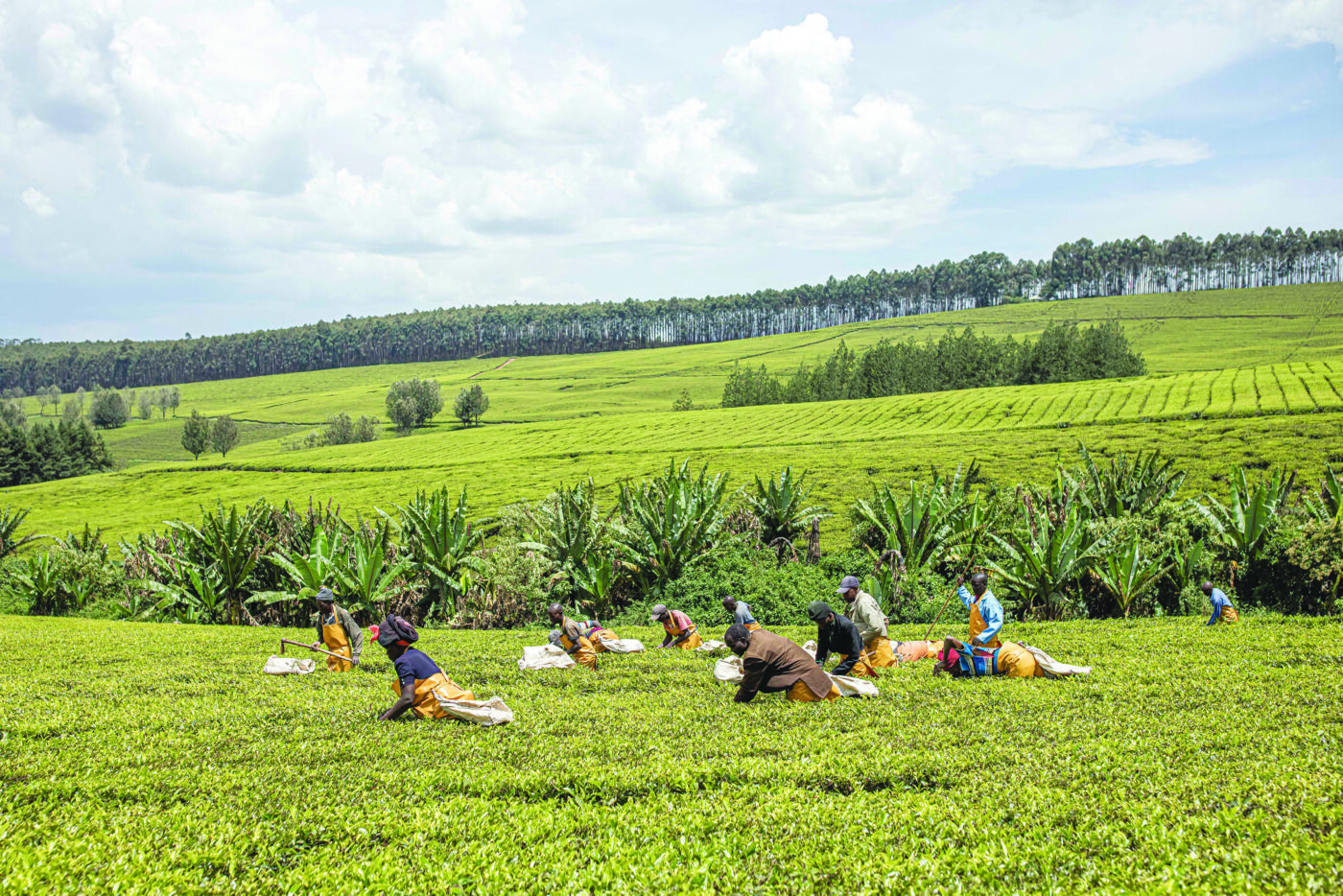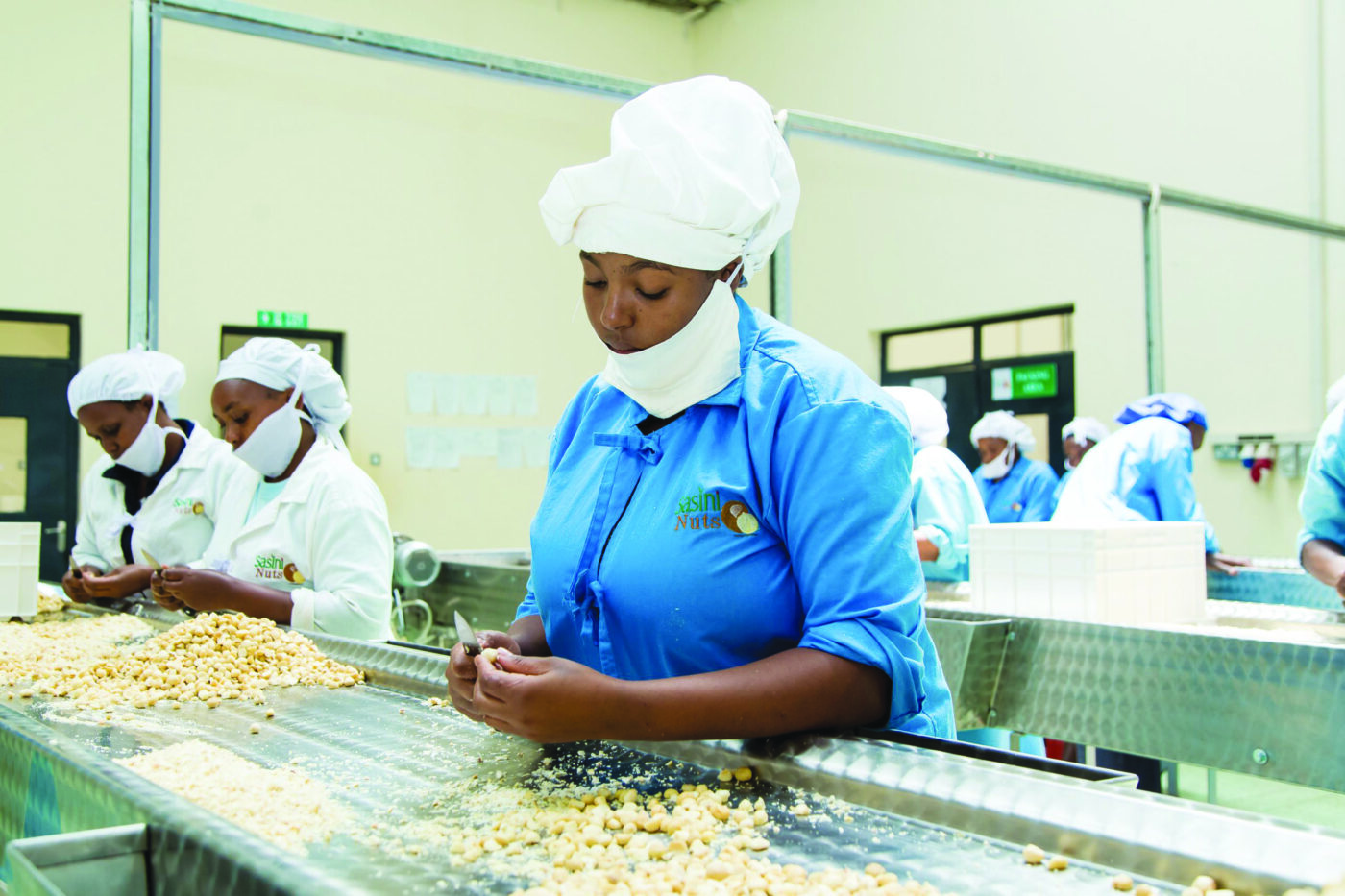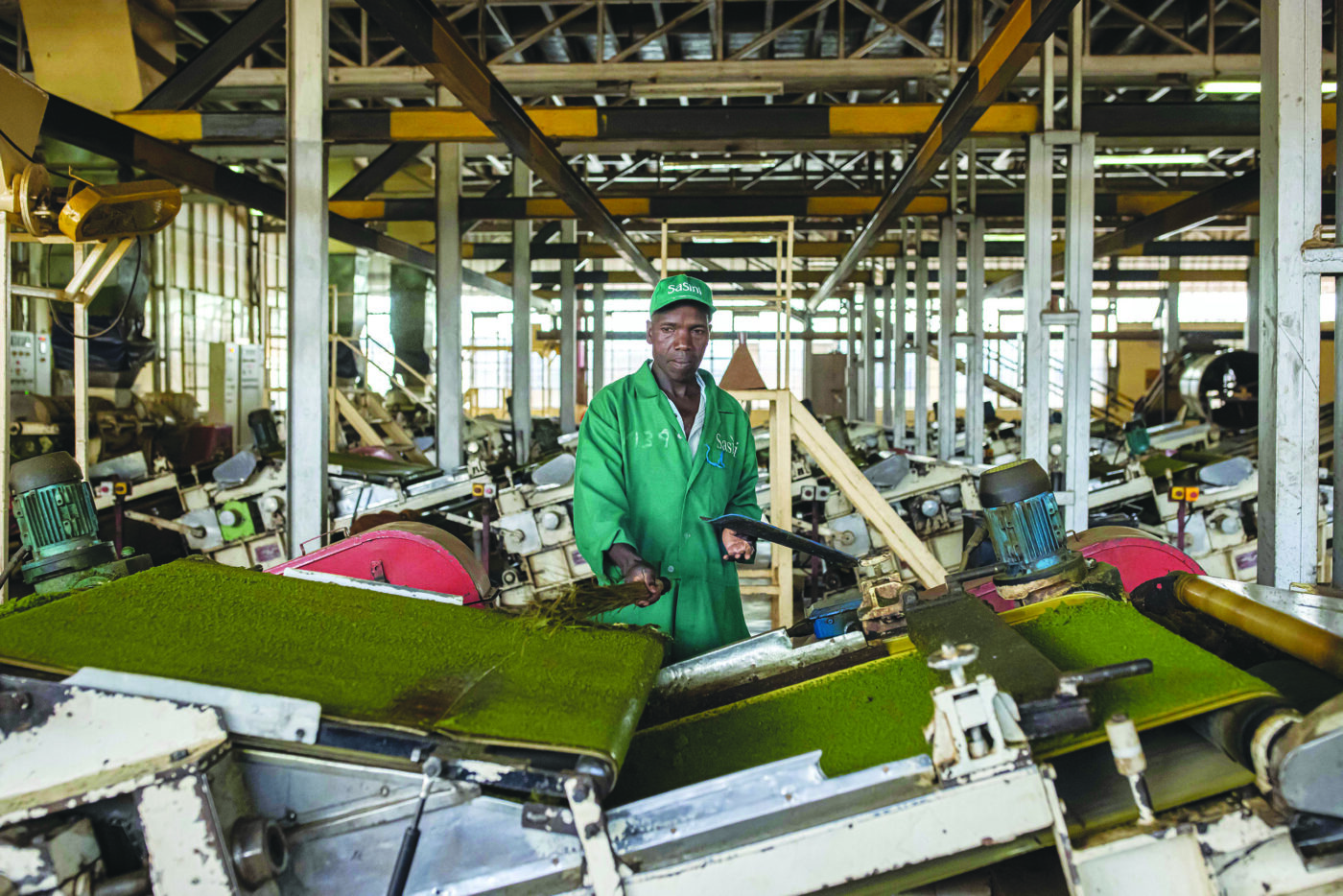#21
SASINI
In 1952, before Kenya stood as an independent nation, there was a single coffee farm located in present day Kiambu County, Central Kenya. Over the years, this coffee operation has steadily grown into one of the country’s most successful multiproduct, multilocational agribusinesses: Sasini.
In 1960, Sasini became a publicly traded company listed on the Nairobi Securities Exchange (NSE), previously known as the Nairobi Stock Exchange.
The firm currently has more than 8,000 shareholders, most of whom are local and small-scale farmers, with the majority of those at the top being Kenyan businessmen. It is truly a Kenyan business.
By the late 50s, Sasini had realised the name of the game: product diversification. The company acquired a significant stake in its first tea operation known as Kipkebe, somewhere in the west of the Great Rift Valley region. This is how the firm settled on its two flagship products: coffee and tea, of the highest quality.

In 1988, Sasini became a member of the Sameer Group of Companies, one of Kenya’s largest conglomerates with a vast amalgamation of investments and footprint in different sectors of the country’s economy.
Today, Sasini is East Africa’s biggest agribusiness, with ambitions of being Africa’s number 1 agricultural business. The company has diversified its operations into the growing, processing, marketing and exporting of avocados and macadamia nuts, as well as value addition of the related products for the local retail market. Sasini’s main export destinations for its goods include as far as Japan and South Korea in the Far East, Europe, the United States of America (USA), Middle East, Asia, and some African countries like Egypt.
Sasini recorded a remarkable profit after tax of Kes. 1.168 billion in the fiscal year ending September 2022, which represents a significant increase compared to the previous year’s profit of Kes. 573.2 million. This is the highest profit made by the firm in seven years.
Sasini’s tea is grown by its subsidiary Kipkebe, operating two major crush, tear, and curl (CTC) factories that serve four estates covering 3,616 acres, and an outgrower catchment area that spans the three counties of Nyamira, Kericho and Bomet.
More than 15,000 metric tonnes (mt) of black CTC tea are produced annually by the company, 99 percent of which is exported. 50 percent of the green leaf is sourced from Sasini-owned estates, while the other 50 percent is sourced from out growers in the region.

The company’s coffee is grown on nearly 2,000 acres distributed into six independent estates in the Central Highlands of Kenya, with a total production capacity of 1,200 mt annually. 90 percent of this produce is exported directly to overseas roasters and trade houses across the globe.
Of note, Sasini offloads a large amount of its coffee to one of the world’s largest chain of coffeehouses and roastery reserves: Starbucks. The balance is offloaded through the Nairobi Coffee Exchange (NCE). The Sasini coffee mill has a daily production capacity of 3,200 bags of green coffee, constituting about 20 percent of Kenya’s total coffee production.
Sasini’s state-of-the-art macadamia nut processing factory was commissioned in 2019 and is the most modern nut processing facility in East Africa. It has the capacity to crack about six million kilograms (kg) of nut in shell (NIS) annually, with a good whole kernel recovery ratio. Mature nuts in their unprocessed form are sourced from other well managed and controlled farms within the region. To sustain future production and supplies, Sasini has intercropped macadamia trees within its extensive coffee estates. The macadamia nut business is run by one of the firm’s subsidiaries, Sasini Fruits & Nuts Export Processing Zone (EPZ) Kenya.

Approximately nine years ago, the global interest in avocados significantly rose and the fruit was dubbed ‘the world’s favourite super food’. Intent on not being left out, Sasini began exporting avocados in 2018, through Sasini Avocado, a licensee of the Agriculture and Food Authority Horticultural Crop Directorate. The company sources its fruit from authorised outgrowers, while it grows about 500 acres of the Hass variety of avocados, which are preferred for commercial purposes, in the Highlands of Nyeri, Nyamira, Nandi and Meru counties.
Apart from the natural incentive to make profit, as well as Kenya’s favourable climate conditions, both the avocado and macadamia nut businesses are strategically placed to respond to the United Nations’ (UN) Sustainable Development Goals (SDGs), specifically SDG #3 on promoting Good Health and Wellbeing. This emphasises the organisation’s commitment to sustainability, as indicated in its first Sustainability Report released in 2023.
In terms of value addition, Sasini produces goods such as pure grade tea bags and instant coffee that are marketed and sold as premium products.
Sasini’s production activities are all certified under various globally recognised certification standards to assure its consumers of cautious utilisation of food safety handling techniques, quality products and traceability at all levels.

Devoted even further to high production quality, the organisation works with small-scale farmers from all over the country and is actively involved in extending agronomy services to them, to ensure good agricultural practices (GAP) for maximum benefit when it comes to product yield.
As reported in its Sustainability Report, Sasini is committed to driving 9 of the 17 United Nations Sustainable Development Goals (SDGs). In addition to Good Health and Wellbeing, they include: No Poverty; Quality Education; Gender Equality; Affordable and Clean Energy; Decent Work and Economic Growth; Industry, Innovation and Infrastructure; Responsible Consumption and Production; and Life on Land. These SDGs are being executed in six key material topical areas: Environment and Climate Change, Employee Development and Welfare, Product Safety, Quality and Responsibility, Developing Communities, Business Ethics, and Compliance and Sustainable Supply Chains.
With the charismatic leadership of Martin Ochien’g as Managing Director, Sasini is well poised on its way to accomplishing its vision of becoming Africa’s premier agribusiness: a true customer-obsessed brand.
















